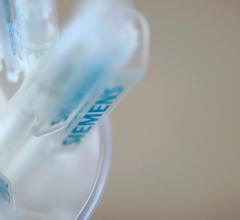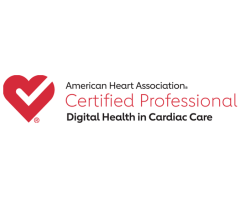
May 29, 2020 — As states begin to re-open as the number of COVID-19 patients declines, 40 percent of Americans still view going to the hospital as a risky behavior – even more than going to the hair salon, a concert or the beach. This was according to a new national survey released today by the Society for Cardiovascular Angiography and Intervention (SCAI). The survey findings confirm a growing concern among doctors and hospitals, that people are more afraid of contracting COVID-19 (SARS-CoV-2) than seeking care for serious medical emergencies like a heart attack or stroke.
This data comes during a time when hospitals nationwide are seeing up to a 60 percent reduction in admissions for heart attacks, and according to the American College of Emergency Physicians, emergency room volumes are down by up to 50 percent, underscoring fears in the medical community of the dangerous, and potentially fatal, effects of COVID-19. These fears are also backed by a recent study showing a 38 percent drop in patients being treated with a life-threatening ST-elevated myocardial infarction (STEMI) heart attacks.
The American Collage of Cardiology (ACC) warned on this trend in mid-April, when it began an outreach effort to patients and to the media to tell people it is OK to go to the hospitals. The ACC said statistics for emergency rooms (ER) visits showed major drops in heart attack, stroke amid the COVID-19 pandemic. Read the article.
Heart disease is the number one killer of Americans each year, responsible for one in four deaths. Yet, a new nationally-representative study, conducted by SCAI with Definition 6, found more than 50 percent of Americans are more afraid of contracting COVID-19 than experiencing a heart attack, and an alarming rate of people are avoiding care for medical emergencies because of it.
“The data that we are seeing from this survey is not just disturbing, it is a clear sign that Americans may be in for a dangerous third wave of complications, and even fatalities, from delaying cardiac care during the time of this pandemic,” said Cindy Grines, M.D., MSCAI, SCAI president, and chief scientific officer, Northside Cardiovascular Institute in Atlanta. “While there is still much we don’t know about COVID-19, we do know that when it comes to heart attacks or strokes, getting to the hospital quickly and receiving immediate care is the only safe course of action. Time to treatment helps ensure the best possible patient outcomes.”
To help combat these fears and reverse the trend that’s emerged since stay-at-home orders have been put in place, SCAI wants to educate and empower people that even in this COVID-19 environment, seconds still count when it comes to their heart health. The Seconds Count Campaign is designed to help Americans remember the signs of a heart attack or stroke, and remind people that in the event of a cardiac emergency, seconds count when it comes to receiving life-saving care.
“Cardiovascular disease is not hiding out in self-isolation waiting until it’s safe to strike,” said Kirk N. Garratt, M.D., MSc, MSCAI, medical director, Center for Heart and Vascular Health, Christiana Care Health System in Newark, Del., and SCAI past president. “Now more than ever, we need to make sure people at risk, and their loved ones, know the signs of a heart attack or stroke and understand the need to get to the hospital quickly. Fear of COVID-19 can also be fatal. Delaying care results in more serious heart damage and even death. Our hospitals are ready to give the right cardiac care – safely.”
Key Survey Highlights Showing Patient Fear of Going to Hospitals Amid COVID-19:
• As states start to open up, more than one-third of Americans (36 percent) consider going to the hospital to be one of the riskiest behaviors to take part in compared to going to a hair salon (27 percent) or going to the beach (16 percent).
• 61 percent of respondents think they are either somewhat likely or very likely to acquire COVID-19 in a hospital
Half of respondents are more afraid of contracting COVID-19 than experiencing a heart attack or stroke.
• Nearly 60 percent of respondents are more afraid of a family member or loved contracting COVID-19 than experiencing a heart attack or stroke.
• When asked which are you more afraid of, contracting COVID-19, experiencing a heart attack or experiencing a stroke – twice as many people over the age of 60 are more afraid of contracting COVID-19 (52 percent) than they are of experiencing a heart attack (23 percent) or stroke (25 percent).
Hospital Safeguards Are in Place to Prevent COVID-19 Infections
SCAI is urging people who have an urgent or emergency medical situation to not put it off. The society said hospitals have processes and safety measures in place to keep you separate from COVID-19 patients. These include:
• Checking temperatures;
• Requiring masks;
• Limiting number of visitors, and;
• Practicing social distancing in waiting rooms, exam rooms and emergency rooms.
SCAI’s Seconds Still Count survey included 1,068 responses from a nationally representative sample over age 30. The confidence level for the survey is 95% with a margin of error of ±3.06.
SCAI is a 5,000-member professional organization representing invasive and interventional cardiologists in approximately 75 nations. SCAI's mission is to promote excellence in invasive/interventional cardiovascular medicine through physician education and representation, and advancement of quality standards to enhance patient care.
For more information: www.secondscount.org
Missing STEMI Cases During COVID-19 Content:
VIDEO: Where Have all the STEMI Cases Gone Amid COVID-19? — Interview witrh Thomas Maddox, M.D.
Rapid Drop in Heart Attacks and Stroke at Hospitals Concerns ACC
VIDEO: Impact of COVID-19 on the Interventional Cardiology Program at Henry Ford Hospital — Interview with William O’Neill, M.D.
VIDEO: 9 Cardiologists Share COVID-19 Takeaways From Across the U.S.


 November 14, 2025
November 14, 2025 









